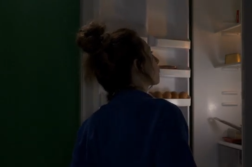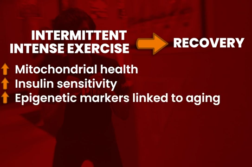BALTIMORE, Md. (Ivanhoe Newswire) – As many as 160,000 new cases of cancer are diagnosed every year in Ukraine, and health experts say continuing care for these patients, either in new countries, or in their homeland, may pose a global health challenge. Ukrainians
Images and pictures that we’ve seen almost every day for months – shelled out cities in Ukraine, women and children heading for the border, while men stay behind to fight. Mercy Medical Center surgical oncologist, Vadim Gushchin, MD, was invited to Ukraine in 2012 before the war and met with leaders in Lugansk to discuss an American-led hospital there. He formed a bond with his Ukrainian counterparts.
“I can’t even imagine how difficult it was for them to survive and provide patient care,” he expresses.
Dr. Gushchin says the Ukrainian doctors texted him when the invasion started. Patients and healthcare workers sheltered in hospital basements. Oncologists began to map out what procedures they could and couldn’t do.
“What if there is no electricity and the treatment is terminated midway? So, what do you do?” Dr. Gushchin explains.
Roads were blocked and infrastructure was broken, so, chemotherapy and radiation supplies became a deep concern. Some patients were evacuated.
Dr. Gushchin adds, “They decided to outsource higher acuity care to safer places or to send patients to Europe.”
Cancer care for refugees can be tricky, as medical records are hard to access, and language could become a barrier. Dr. Gushchin said one other obstacle to cancer care is the dwindling number of Ukrainian oncologists – many of the male oncologists also felt compelled to serve and joined the Ukrainian army. The American Cancer Society and Cancer.net have compiled resources to help people with cancer navigate their care during the Ukrainian crisis. More information is available at www.asco.org.
Contributors to this news report include Cyndy McGrath, Producer; Kirk Manson, Videographer; Roque Correa, Editor.
To receive a free weekly e-mail on medical breakthroughs from Ivanhoe, sign up at: http://www.ivanhoe.com/ftk
Sources:
https://www.thelancet.com/journals/lanonc/article/PIIS1470-2045(22)00149-8/fulltext
https://www.asco.org/news-initiatives/current-initiatives/info-patient-dr-ukraine
MEDICAL BREAKTHROUGHS
RESEARCH SUMMARY
TOPIC: TREATING CANCER IN A WAR ZONE: CARING FOR UKRAINIANS
REPORT: MB #5126
BACKGROUND: More than two million refugees have fled Ukraine since the Russian invasion began on Feb 24, 2022, and over four million people, 10% of the population, are expected to be forcibly displaced as they seek safety, creating a wide-ranging humanitarian crisis. Ukraine has a high cancer burden with more than 160,000 new diagnoses in 2020 alone. The country also has one of the highest childhood cancer mortality rates globally. Thus, disparities in cancer care in Ukraine were already high before and will now undoubtedly worsen as a result of the conflict. WHO estimates that at least 3.8 million Ukrainians affected by the crisis require health services and those with cancer are especially vulnerable if their care is interrupted.
(Source: https://www.thelancet.com/journals/lanonc/article/PIIS1470-2045(22)00149-8/fulltext)
ADVOCACY: Anna Uzlova is a 39-year-old breast cancer survivor in Kyiv, who has devoted her survivorship to helping patients find resources and support since 2018. In 2020, she joined forces with 3 other cancer survivors to create Inspiration Family, a nonprofit organization that provides cancer education, resources, and support groups. Its patient advocacy work aims to improve access to quality cancer care across the country. When Russia attacked Ukraine in February, her group was flooded with messages from newly diagnosed patients with cancer and others whose treatment was stopped by the war. Ms. Uzlova has been collaborating with the Netherlands for Ukraine Foundation to secure treatment, housing, and supplies for patients. In the past few months, Ms. Uzlova has accompanied more than 60 people, including 28 patients and their family members to the Netherlands. She hopes other countries will step up and provide medical support. Ukrainians
(Source: https://dailynews.ascopubs.org/do/10.1200/ADN.22.201055/full/)
WAYS TO HELP: Julie Gralow, MD, FACP, urges those who want to help to check out ASCO’s main Ukraine assistance hub, www.asco.org/Ukraine. She cites ASCO’s statement strongly condemning the war, which states in part: “Interruption of cancer care simply adds to the massive pain and needless suffering caused by war.” Dr. Gralow noted that, as a global cancer society, ASCO represents oncology professionals in Ukraine and its neighboring countries, including Poland, Romania, Moldova, Slovakia, and Hungary.
FOR MORE INFORMATION ON THIS REPORT, PLEASE CONTACT:
Dan Collins
(410) 332-9714
If this story or any other Ivanhoe story has impacted your life or prompted you or someone you know to seek or change treatments, please let us know by contacting Marjorie Bekaert Thomas at mthomas@ivanhoe.com



